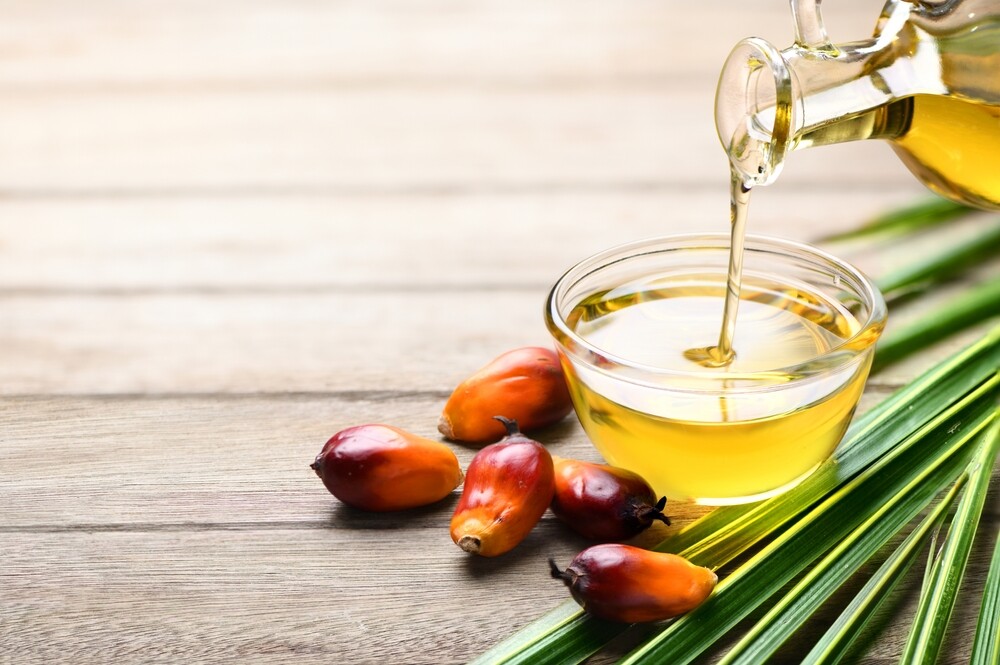As you probably know, certain foods are thought to contribute to the development and spread of cancer. What about palm oil—a common ingredient found in everything from snack foods to cosmetics? Is palm oil a hidden cancer risk, or just another misunderstood fat?
In this article, the integrative oncology team at SIE Medical shares our research to help answer the question, “Is palm oil cancerous?” We’ll also touch on some of the ethical and environmental issues connected to the harvesting of palm oil and suggest healthy alternatives to cooking with palm oil.
What is Palm Oil? Where Does it Come From and How is it Used?
Palm oil is pulled from the fruit of the oil palm tree, primarily grown in Indonesia and Malaysia. Its neutral flavor, long shelf life, and low cost make it a favorite among food manufacturers. You’ll find it in baked goods, margarine, non-dairy creamers, fried snacks, packaged soups, and even personal care products like soap and lipstick.
While palm oil is incredibly versatile, its production has raised environmental and ethical concerns. Large-scale palm oil plantations contribute to deforestation, loss of wildlife habitat, and greenhouse gas emissions. Additionally, labor exploitation has been reported in some palm oil–producing regions, leading to regulatory action in certain countries.
Palm Oil and Cancer: Spread vs. Cause
In 2021, news outlets began writing about new research linking palm oil to cancer. This study, conducted in Spain, found that:
When palmitic acid was supplemented into the diet of mice, it not only contributed to metastasis but also exerted long-term effects on the genome. Cancer cells that had only been exposed to palmitic acid in the diet for a short period of time remained highly metastatic even when the palmitic acid had been removed from the diet. Read the full article.
But let’s be clear about what this study shows.
When discussing the link between dietary fats and cancer, it’s crucial to differentiate between fats that cause cancer and those that promote its progression. Causation means that a substance initiates cancer by damaging DNA or triggering uncontrolled cell growth. Promotion, conversely, refers to factors that help existing cancer cells grow or spread—a process known as metastasis.
Some types of dietary fats (like palm oil) may not spark cancer in the first place, but could influence how aggressive it becomes if cancer is already present. Palm oil contains a significant amount of palmitic acid, a type of saturated fat that has drawn attention from cancer researchers. Laboratory and animal studies suggest that palmitic acid might create conditions that make it easier for cancer cells to migrate and establish themselves in new tissues. This effect involves changes in how cancer cells interact with their surrounding environment, potentially altering cell signaling, immune system response, and inflammation.
It’s important to note that this is still an active area of research, and the results are inconclusive. This research may also help scientists understand how to slow the spread of cancers. Human studies have not yet established palm oil or palmitic acid as a direct carcinogen. In other words, eating palm oil hasn’t been definitively shown to cause cancer. However, regularly consuming high amounts of saturated fats, including those from palm oil, may contribute to chronic inflammation and metabolic changes that can make the body more hospitable to cancer growth and spread. Eating a high fat diet in a high carbohydrate setting metabolically is much more inflammatory and a good environment for cancer.
What to do if you Already Have Cancer
In practical terms, moderation matters. If you already have cancer or are trying to be healthier and decrease risk, limiting carbohydrates and eating healthy fat sources is one more step toward creating an internal environment that supports healing rather than disease progression.
Why Palm Oil Imports Were Banned in the US
The United States has restricted palm oil imports from specific producers not due to health issues, but rather documented labor abuses within parts of the palm oil industry, such as forced labor and unsafe working conditions.
While this doesn’t directly relate to cancer risk, it serves as a reminder that the ethical and environmental impact of our food choices is just as important as the nutritional side.
General Health Considerations of Palm Oil
From a general health perspective, palm oil is high in saturated fat. While it does contain some vitamin E and antioxidants, excessive saturated fat intake can contribute to cardiovascular issues, inflammation, and overall disease risk. This is a higher risk if combined with a high carbohydrate diet.
Healthier Cooking Oils for Cancer-Conscious Eating
If you’re aiming for optimal health and cancer prevention, focus on oils rich in unsaturated fats and antioxidants:
- Extra virgin olive oil is high in monounsaturated fats and polyphenols, anti-inflammatory and heart-healthy. Should only be used in cool temperatures.
- Avocado oil is rich in monounsaturated fats and vitamin E, and remains stable at high heat.
- Walnut oil provides plant-based omega-3s, which makes it great for finishing cooked dishes.
- Grapeseed oil has a neutral flavor and a high smoke point, making it good for sautéing.
By choosing oils that support anti-inflammatory, nutrient-dense eating, you not only benefit your heart and brain but also create a less favorable environment for cancer growth and spread.
Learn More About Nutrition and Integrative Oncology
At SIE Medical, we understand that cancer care isn’t just about treatment—it’s about creating a lifestyle that supports healing and reduces risk. Our integrative oncology approach combines advanced medical expertise with nutrition, lifestyle changes, and natural therapies to help you live your healthiest life.


